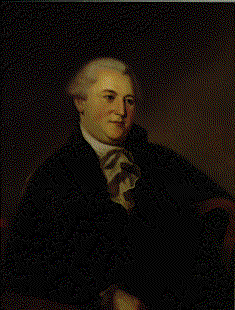Get Today in Masonic History into your Inbox. Sign up today for one of our email lists!
Need an article for your Trestleboard/Newsletter see our Use Policy
Gunning Bedford, Jr. is Born

Today in Masonic History Gunning Bedford, Jr. is born in 1747.
Gunning Bedford, Jr. was an American politician and founding father.
Bedford was born on April 13th, 1747 in Philadelphia, Pennsylvania. He remained there until the age of 20 when he left for the College of New Jersey, now Princeton University. There he was classmates with future president James Madison. He graduated in September of 1771. The following year he married the daughter of James Parker an apprentice to Benjamin Franklin in the printing trade.
Bedford read law in New York City and in 1779 began practicing law there. In 1783 he left for Delaware, living first in Dover and then in Wilmington.
In 1775, the Continental Congress elected Bedford Deputy-Muster-General for the Continental Army in New York. The following year he was assigned first to the norther army in Canada. Later in 1776 he was promoted to Muster-master-general and assigned again to New York.
Shortly after arriving in Dover in 1783 Bedford was elected to the Legislative Council of the Delaware General Assembly, which later became the Delaware House of Representatives. He served four terms in the Legislative Council until 1787. During his time in the House of Representatives he also served from 1783 to 1786 in the Continental Congress. In 1788 he started a three year term in the Legislative Council, which became the Delaware State Senate. During his time in the State Senate he also served as the first Attorney General of the of the State of Delaware.
In 1787 Bedford took his place as one of the founding fathers by being the Delaware delegate to the Federal Constitutional Convention. At the Convention, he was the most vocal advocate of small state rights. Unlike other small state representatives at the convention who sought to have a strong Federal Government to protect the smaller states against their larger neighbors, Bedford sought a smaller Federal Government. When the conflict over representation threatened to wreck the convention, Bedford laid aside his more local interests and sought compromise.
In the process of the compromise, Bedford stated the smaller states may be forced to seek foreign allies as protection from their more populous neighboring states. His exact statement was "the small ones would find some foreign ally of more honor and good faith, who will take them by the hand and do them justice." This was shouted down as treasonous by other delegates.
Initially Bedford supported the idea the original Articles of Confederation be adopted, with amendments, as the United States Constitution. When the idea was put forward to draft a new Constitution, Bedford supported the New Jersey Plan which was more favorable to small states. The plan was also called the Small State Plan. It gave each state a single vote in a unicameral, or single chambered, legislative body. The opposing plan, called the Virginia Plan, was a two chamber plan with representatives in both chambers being determined by the populous of a given state. Eventually the Virginia plan was adopted with some modifications to compromise with the New Jersey Plan.
Bedford saw this was going to be a great danger to the fledgling country if compromise was not reached. He agreed to sit on a committee drafting the Great Compromise. It adopted the New Jersey Plan as one chamber of Congress, the upper house, with the same number of Representatives per state. This is now the United States Senate. The United States House of Representatives is based on the original Virginia Plan.
Bedford and others in Delaware led the way for the new Constitution in their state and Delaware became the first state to accept the new Constitution. Bedford was asked by the new Representatives to the United States Congress to review a bill to form the new federal judiciary system. In 1789 he was appointed by George Washington as the first judge on the United States District Court for the District of Delaware.
Bedford also believed in the importance of education. He stated education "is, on all hands, justly acknowledged to be an object of first importance." He worked to improve education in Wilmington. He was president of the board of Wilmington Academy and later, when it became Wilmington College became the president of the college.
Bedford passed away on March 30th, 1812.
Bedford was the first Grand Master of the Grand Lodge of Delaware. He served from 1806 until 1808.
This article provided by Brother Eric C. Steele.

